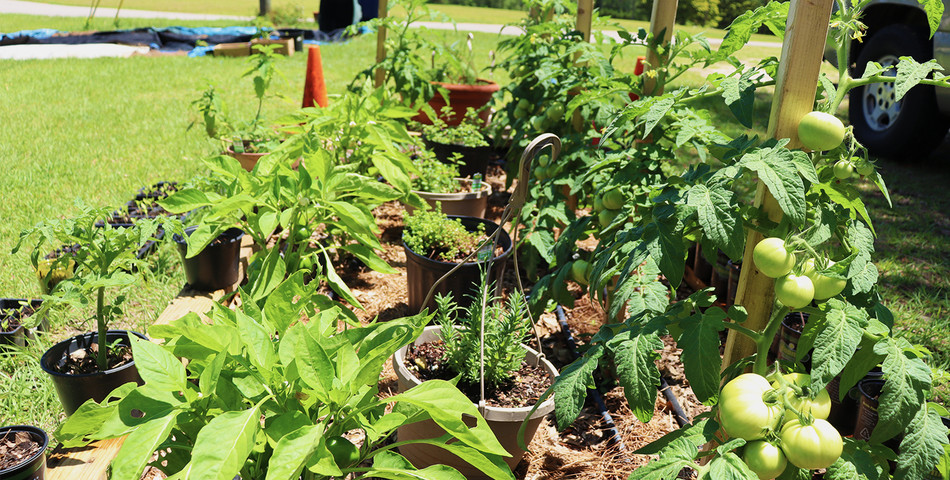With predictions of possible food shortages due to COVID-19 being made, national interest in self-sustaining food sources, such as gardens and egg-laying chickens, has rapidly risen in a movement similar to World War II’s victory gardens.
Anxieties about food security are high right now in the United States. One can easily find this out by visiting his or her local grocery store and watching the panicked shoppers clearing out the egg aisle and purchasing copious amounts of frozen food. However, with grim predictions making the headlines, like the one recently made by David Beasley, executive director of the United Nations World Food Program, it is easy to see why. "In a worst-case scenario, we could be looking at famine in about three dozen countries, and in fact, in 10 of these countries we already have more than one million people per country who are on the verge of starvation," Beasley said.
Beasley’s words made headlines across the nation, particularly the portion about possible famines of “biblical proportions,” and while the United States is not at as much risk as some other countries, the potential for stateside food shortages is real. According to a report from KY3 news in Missouri, rural Missouri communities with meat-packing plants, such as the ones in both Saline and Moniteau counties, have seen higher rates of infection than the state’s larger, more densely populated cities. Experts theorize that this has something to do with the fact that these plants are classified as essential, and workers have found it difficult to uphold social distancing guidelines in the workplace, as the conditions are typically shoulder to shoulder. While some question how much these plants contributed to their counties having the highest infection rates in the state, others are airing on the side of caution. Tyson closed two plants on April 22, one of which was their largest pork plant. This plant was located in Iowa, which produces a third of the country’s pork, and closed as a result of 180 of its workers testing positive for COVID-19.
Although there are some that doubt the seriousness of the COVID-19 pandemic, no one can doubt the effect that it has had on the food supply chain. Even a slight reduction in food security, has startled some into re-cultivating old practices, such as the World War II victory garden, in order to give themselves more confidence in their ability to feed their families, while at the same time, taking some of the burden off the food supply chain. A victory garden was the name used for the backyard vegetable gardens people began growing during World War II, in order to devote more resources to their war effort, and do their part on the home front.
While speaking on why her family chose to start raising chickens and growing their own vegetables, mother of five and registered nurse from Theodore, AL, Leigh-Ann Taylor said, “When you have as big of a family as we do, you go to the grocery store quite often, but something like this pandemic really forces you to realize just how dependent we all really are on our food supply chain.” Taylor is not alone in her fears about food security. A former Spring Hill student, who currently works as a graphic designer, Lexi Clemons said that her “Brother picked up four baby chicks from a tractor supply co., four days ago” and that she “Honestly think[s] having chickens right now is a good idea.” However, both families showed interest in the idea of having a sustainable food source, even before the pandemic, with Clemons saying, “Even without the pandemic, it’s nice to know where your eggs and chicken meat come from.” Taylor’s family was considering the idea of starting a garden and getting chickens long before the current situation. These families are part of a growing number of people in the U.S who are taking up methods of providing their own, grocery-store independent, food. According to a story by Bill Chappell for NPR news, hatcheries have had a hard time keeping up with the sudden demand for chicks. In addition, an even larger number of people are trying their hand at backyard gardening. George Ball, executive chairman of Burpee Seed Company, told Alan Yu of NPR news “We’re being flooded with vegetable orders.”
It is important not to panic and to remember that many of the countries that Beasley is talking about were already experiencing food shortages before the pandemic. However, letting these possibilities of food shortages slip out of public consciousness would be a mistake. While the real risk of starvation is mainly in African countries, Americans, as well as the entire rest of the world, will have to band together in order to help those most affected by this crisis, whether that be in one’s own country or not. “Republicans and Democrats, even though they seem to be fighting over everything, when it comes to food security foreign aid and stabilization, they have been absolutely remarkable and every leader that I have talked to, including the United States, is committed to working with us doing their dead-level best not to back down,” said Beasley. While this pandemic may not be a war, people treating it like one, and doing their best to put less strain on the food supply chain, could save some lives during the famines that might come.
